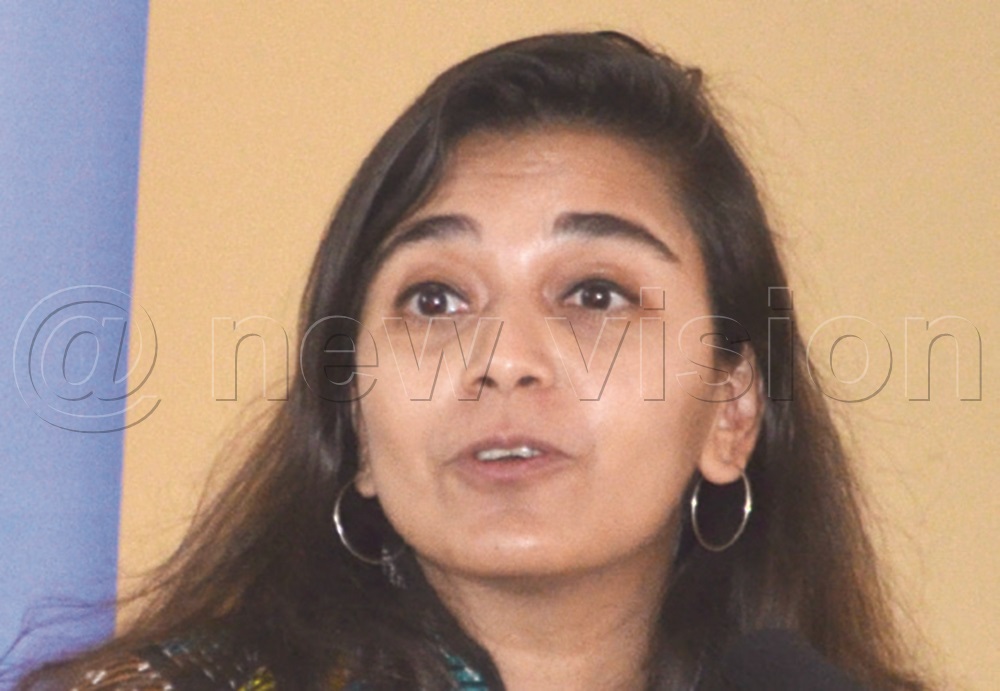Cash transfers less effective to refugees’ resilience – report
Jun 13, 2022
This comes at the backdrop of growing consideration among development partners for cash transfers to refugees in a crisis.

Priya Gujadhur, the FAO deputy representative pictured.

Denis Nsubuga
Journalist @New Vision
The provision of cash to refugees is less likely to safeguard their resilience, especially in the occurrence of adversity, such as sickness, accident, or a pandemic.
Economists in a series of studies have indicated that food security, which is a key factor in people’s resilience during hard times, could not be guaranteed with cash transfers as a form of humanitarian assistance.
Under the Resilience Index Measurement and Analysis (RIMA), researchers investigated the impact of humanitarian assistance in forms such as food and cash transfers, agriculture and business training, as well as access to land to help refugees become resilient during crises.
In one study conducted by the University of Notre Dame, Indiana, USA, economist Irene Staffieri and colleagues established that refugees in Uganda who were affected by COVID-19 found that cash transfers were less effective to build resilience than under normal circumstances.
“Even in the presence of cash transfers, both food security and resilience declined. Cash transfer was less effective for those who declare to be impacted by COVID-19 and was exposed to staple shock,” notes the study.
This was also highlighted in another study by economists, led by Ada Ignaciuk, which explored the benefits of transfers on adverse coping strategies and food security.
Ignaciuk and colleagues found that cash transfers increase food expenditure, while food transfers decrease food expenditure. Measuring through a Food Consumption Score, the economists discovered that beneficiaries of food transfers also show a better quality of diet.
This comes at the backdrop of growing consideration among development partners for cash transfers to refugees in a crisis.
According to the United Nations High Commissioner for Refugees (UNHCR), the last quarter of 2021 experienced a significant scale-up of cash-based transfers to meet refugees’ food and non-food needs in Uganda.
The reports were launched during a conference on improving the impact of the resilience and social protection agenda organized by the Food and Agriculture Organisation of the UN at Speke Resort Munyonyo, Kampala.
Quarter 4 of the Uganda Refugee Response Plan (2020-2021) concluded in December shows that sh22.9b multi-purpose cash and voucher assistance was provided to 55,096 households.
A total of 213,440 households received any form of cash-based assistance for necessities. Uganda hosts the largest subSaharan African community of refugees, coming from conflict-hit countries, such as South Sudan, DRC, and Somalia. As of April, Uganda had a total of 1,553,063 refugees in different areas, according to UNHCR.
The country is acclaimed for its progressive approach to refugee management, where, among other things, they are allowed to engage in economic activities and allocated plots of land for settlement and agriculture.
Self-reliance
Investigating the sustainability of the self-reliance model, Ada Ignaciuk and fellow researchers found that social assistance and training activities are key to alleviating food insecurity and supporting self-reliance.
The training is generally in agriculture and business.
Their study also indicates that cash transfers are positively associated with some agricultural outcomes, but only for refugees that cultivate a sufficient extent of land.
Priya Gujadhur, the FAO deputy representative, observed that establishing a direct connection between donors, policymakers, government, UN-system and the academia at both international and national levels is critical to ensure Uganda’s efforts for the economic development, resilience, and social protection agenda do not go to waste.
Ellestina Jumbe, another economist at FAO, stressed the need to harmonize data collection among different agencies, noting that fostering collaborative action will enhance the impact of the social protection and resilience agenda in Uganda.
Participants highlighted the need to communicate the research findings in ways that can be easily understood and implemented by policymakers throughout the leadership structure in the country.

No Comment